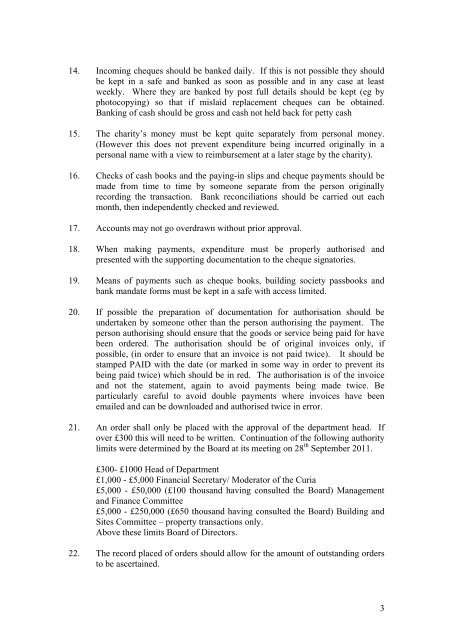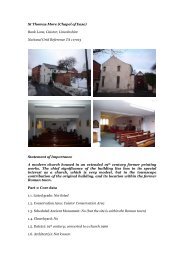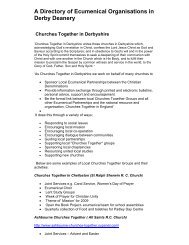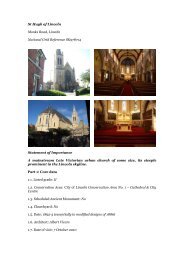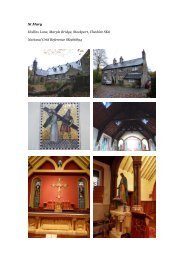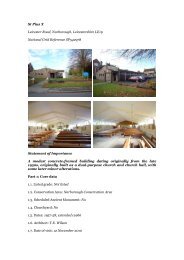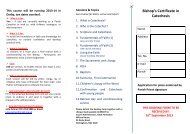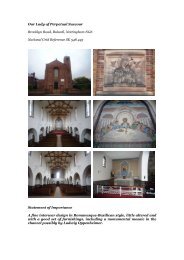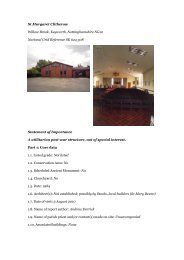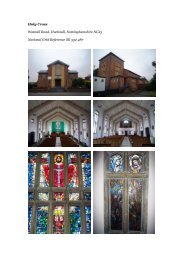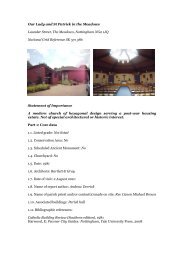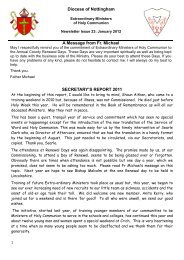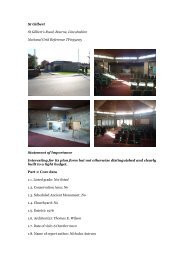Manual of Fiancial & Internal Control Procedures - Diocese of ...
Manual of Fiancial & Internal Control Procedures - Diocese of ...
Manual of Fiancial & Internal Control Procedures - Diocese of ...
You also want an ePaper? Increase the reach of your titles
YUMPU automatically turns print PDFs into web optimized ePapers that Google loves.
14. Incoming cheques should be banked daily. If this is not possible they should<br />
be kept in a safe and banked as soon as possible and in any case at least<br />
weekly. Where they are banked by post full details should be kept (eg by<br />
photocopying) so that if mislaid replacement cheques can be obtained.<br />
Banking <strong>of</strong> cash should be gross and cash not held back for petty cash<br />
15. The charity’s money must be kept quite separately from personal money.<br />
(However this does not prevent expenditure being incurred originally in a<br />
personal name with a view to reimbursement at a later stage by the charity).<br />
16. Checks <strong>of</strong> cash books and the paying-in slips and cheque payments should be<br />
made from time to time by someone separate from the person originally<br />
recording the transaction. Bank reconciliations should be carried out each<br />
month, then independently checked and reviewed.<br />
17. Accounts may not go overdrawn without prior approval.<br />
18. When making payments, expenditure must be properly authorised and<br />
presented with the supporting documentation to the cheque signatories.<br />
19. Means <strong>of</strong> payments such as cheque books, building society passbooks and<br />
bank mandate forms must be kept in a safe with access limited.<br />
20. If possible the preparation <strong>of</strong> documentation for authorisation should be<br />
undertaken by someone other than the person authorising the payment. The<br />
person authorising should ensure that the goods or service being paid for have<br />
been ordered. The authorisation should be <strong>of</strong> original invoices only, if<br />
possible, (in order to ensure that an invoice is not paid twice). It should be<br />
stamped PAID with the date (or marked in some way in order to prevent its<br />
being paid twice) which should be in red. The authorisation is <strong>of</strong> the invoice<br />
and not the statement, again to avoid payments being made twice. Be<br />
particularly careful to avoid double payments where invoices have been<br />
emailed and can be downloaded and authorised twice in error.<br />
21. An order shall only be placed with the approval <strong>of</strong> the department head. If<br />
over £300 this will need to be written. Continuation <strong>of</strong> the following authority<br />
limits were determined by the Board at its meeting on 28 th September 2011.<br />
£300- £1000 Head <strong>of</strong> Department<br />
£1,000 - £5,000 Financial Secretary/ Moderator <strong>of</strong> the Curia<br />
£5,000 - £50,000 (£100 thousand having consulted the Board) Management<br />
and Finance Committee<br />
£5,000 - £250,000 (£650 thousand having consulted the Board) Building and<br />
Sites Committee – property transactions only.<br />
Above these limits Board <strong>of</strong> Directors.<br />
22. The record placed <strong>of</strong> orders should allow for the amount <strong>of</strong> outstanding orders<br />
to be ascertained.<br />
3


